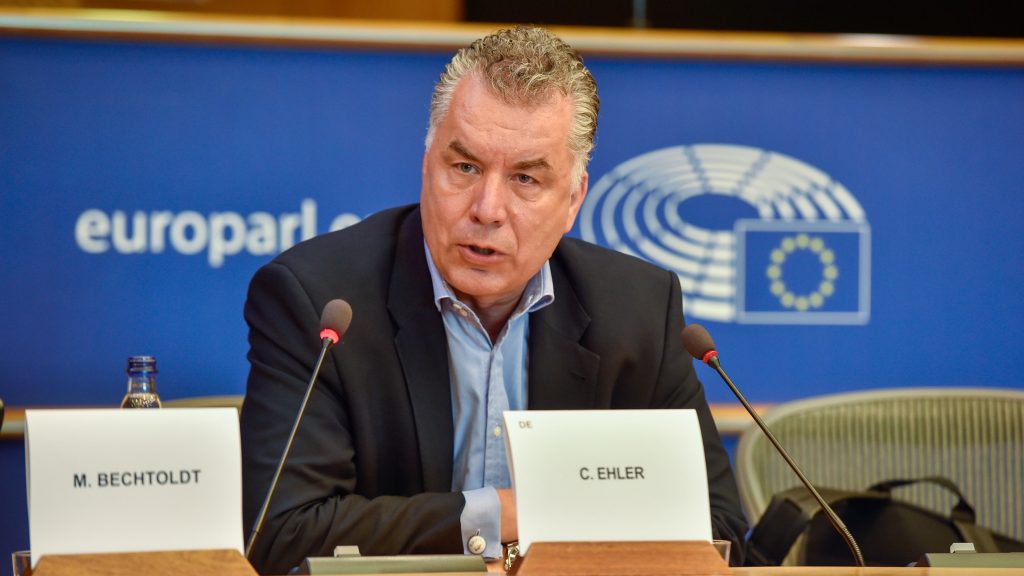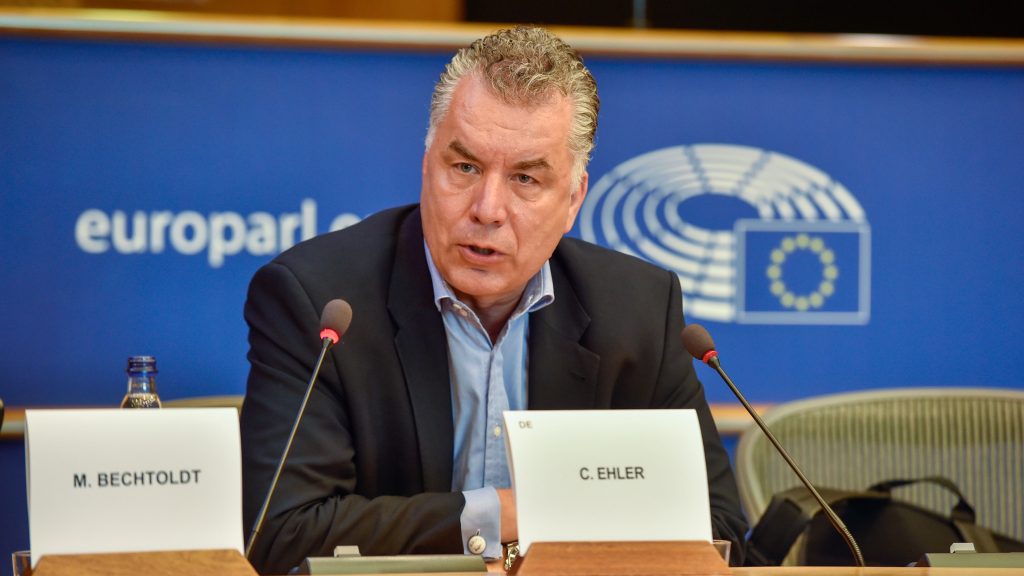Hydrogen’s golden potential beckons
Hydrogen holds great potential to assist the EU in achieving independence from Russian fossil fuels. However, for this to happen, policymakers need to unlock financing, simplify permitting procedures and set aside archaic unbundling rules, writes MEP Christian Ehler.
MEP Christian Ehler is the chief spokesman on Energy, Industry and Research for the EPP Group in the European Parliament.
The EU is trying to get hydrogen off the ground and for good reason. The steep rise in energy prices and the dependence on Russian energy, have forced us to rethink our energy priorities.
There is no question that we need to invest more and faster in renewables and hydrogen. They are needed more than ever before and they will be needed for a very long time. What we are talking about, is plainly a vital investment into our future and that of our children.
Time is not on our side though. Europe depends too much on Russian energy. And we do not know whether Putin will wake up one day and decide to turn off the tap. We need to act fast.
The roll-out of renewables has to be faster and so is that of hydrogen energy. We simply have no other choice.
Hydrogen is still an infant technology and its infrastructure is virtually non-existent. Let’s take transport as one example. In order for heavy vehicles to run on hydrogen, they need a hydrogen highway, meaning a chain of hydrogen-equipped filling stations and other infrastructure along a highway which allow hydrogen vehicles to travel.
Behind these hydrogen stations, another layer of hydrogen infrastructure would be needed; namely the hydrogen pipeline transport and points of hydrogen production for distribution. And yet, none of this is available, or if it is, it is not anywhere near a fully-fledged market.
So how do we go about putting this technology on the market? For starters, we need to acknowledge that the existing gas infrastructure can be used for hydrogen. Hydrogen is viable only if we repurpose the existing gas infrastructure to carry hydrogen instead.
However, the EU Commission wants the EU hydrogen network operators to unbundle their production and supply activities.
What this means is that hydrogen network operators would have to be legally and structurally independent from companies involved in the transmission or distribution of natural gas or electricity. The transmission systems operators for electricity or natural gas would not be able to act as hydrogen network operators.
Indeed these unbundling ideas will hinder, rather than help us reach our final goal of allowing hydrogen to become a key component of the energy sector.
My office has received many queries about this, mostly expressing concern, not least because this creates more burdens for operators and it will make the integration of hydrogen in the exiting gas grid harder and longer.
There is no doubt that the EU Commission had good intentions but under the current circumstances, its approach will not fly, for the simple reason that it slows down the process and it is not the most cost-effective way.
These ideas seem to be rooted in the past, with an ideological underpinning rather than driven by an authentic understanding of the present needs.
Unbundling rules have to facilitate the efficient use of expertise and services from transmission system operators who are entrusted with the transport of energy, by allowing different vertical unbundling models across the EU, as is the case with the natural gas models.
We also need to unlock financing in order to fast-track the deployment of hydrogen infrastructure. This could happen if we leverage regional regulatory flexibility and other pragmatic financing solutions, including incentivising the use of hydrogen on the demand side.
Clearly, planning and permitting procedures for renewable energy and hydrogen infrastructure projects should be simplified and shortened. We need to intensify energy partnerships with exporting countries, like Morocco, Algeria, Tunisia and Ukraine.
And last but not least, we need to establish an integrated energy system planning of hydrogen, natural gas, and electricity infrastructure.
Although it is the current circumstances that compel us to treat this sector with utmost priority, hydrogen itself holds great promise and potential.
Resource: https://www.euractiv.com/section/energy/opinion/hydrogens-golden-potential-beckons

